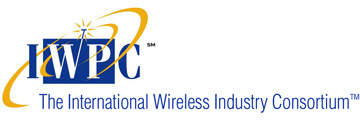Deploying
Tower/Roof/Pole
Mounted Electronics
Managing Active Antenna and Remote Radio Head OPEX
Driving Installation and Maintenance Best Practices
Hosted by:

When
January 27-28, 2014
Register
Limited to 100 seats
First Registered, First Served!
Attendance open to Infrastructure Thrust, mmWave Thrust or Full IWPC Members
Confirmed Carriers




Confirmed Speakers or Panel Members








Agenda
|
DAY 1 January 27 Monday 7:00 PM
|
Social and Networking Reception and Registration
|
Hotel |
|
DAY 2 January 28 Tuesday 7:00 AM |
Networking Breakfast and Continued Registration |
Hotel
|
|
8:00 AM |
Opening Remarks and Self-Introductions Each person will be asked to introduce him/herself and show how they can contribute to this process. |
IWPC/TTER Working Group Chair
|
|
8:45 AM |
Host Keynote Opening Remarks and Presentation
|
Sprint and Tower Top Electronics Technical Development Strategist
Requirements for Tower Top Electronics Superior Networks & Stellar Performance Lead Product Dev. Engineer Principal Product Dev. Engineer
|
|
10:00 AM |
Networking Break |
|
|
10:40 AM |
Addressing Passive Inter-Modulation (PIM)
|
Test Methods and Best Practices for PIM Measurement and Control President, North America
Senior Product Line Manager
|
|
12:00 PM |
Networking Lunch |
|
|
1:00 PM |
Active Antennas and Remote Radio Heads
|
Committee Updates: Survey on Alarms and Open Radio Interface, Prognostics and Field Return Observations Product Manager, Network Product Line
System Reliability Manager
|
|
1:40 PM |
Cables and Connectors
|
Grounding Best Practices for Cell Sites with Tower Top Remote Radio Heads Engineering Manager
Senior Electrical Engineer
|
|
2:20 PM |
Surge Suppression and Protection
|
Surge Suppression and Protection VP of Engineering
|
|
3:00 PM |
Networking Break |
|
|
3:30 PM |
Installation and Best Practices
|
Macrosite Densification: Implications for Tower Loading, Passive Infrastructure and Weatherproofing Applications Engineer, Wireless
Best Practice for Field Acceptance Testing - The Supporting Fiber Infrastructure CTO - Advisor
|
|
4:50 PM |
Closing Discussion
|
Host, Carriers & Working Group Chairpersons |
|
5:30 PM |
Takeaways and Closing Remarks |
IWPC |
|
5:45 PM |
Adjourn |
|
7:00 PM |
Social and Networking Reception and Registration IWPC Workshop: Implementing SON in a Multi-Layer HetNet Environment Separate registration required. |
Hotel
|
FAQs
- What is the deadline for presentation/handout materials?
- What can I do to prepare for speaking an at IWPC workshop?
- Who are the attendees?
- What are the costs/registrations fees?
- Hotel information?
- What are the travel options from the airport to the hotel?
- Are there any audiovisual requirements?
- Will business cards be collected?
- What is the dress code?
- How will handout materials be provided?
- What is the deadline for presentation/handout
materials?
Deadline for electronic version of presentation/handout materials: Friday, January 17th 2014.
- What can I do to prepare for speaking an at
IWPC workshop?
Click on the link below for a short video guide regarding preparing for and improving your IWPC presentation:
- Who are the attendees?
- We do not permit the Press.
- We do not permit Analysts.
- We do not permit Consultants.
- We do not permit 3rd party sales reps.
- We only permit "first hand knowledge
experts" in business and technology issues, prepared to
contribute to the discussion.
- What are the costs/registrations fees?
ALL Hosts, Speakers, Panel Members and Attendees will be asked to cover out-of-pocket workshop costs such as conference room costs, food (Social Reception plus First Day breakfast/lunch/dinner plus Second Day breakfast/lunch plus Breaks), audio/visual costs, etc.
These costs will be $394 (USD) per person. (For IWPC Members only.)
ALL Hosts, Speakers, Panel Members and Attendees will be asked to pay this fee in advance with either Visa, MasterCard, American Express, cash, personal check or business check. Make checks payable to IWPC.
- Hotel information?
W Atlanta - Buckhead
3377 Peachtree Road NE
Atlanta, GA 30326
Phone: +1 678-500-3100
http://www.watlantabuckhead.com/?PS=LGEN_AA_DNAD_CGGL_TPRPGuests may register online at https://www.starwoodmeeting.com/Book/iwpcjanuary2014atlanta. The IWPC room block rate is $159.
The cut-off date for reservations is Thursday, January 9th, 2014. After that date, rooms cannot be guaranteed at the IWPC rate.
- What are the travel options from the airport
to the hotel?
Directions and transportation options can be found on the W Atlanta Buckhead website.
- Are there any audiovisual requirements?
A Computer Projector will be available for the speakers.
In addition, we audiotape all presentations and the interactive discussions. Post workshop, presentations are made available to IWPC Members on the IWPC WEB site, along with “recordings” of all presentations and panel sessions.
- Will business cards be collected?
Business cards will be collected at the door from all attendees. We will make copies of these cards, which will be available to all who provided a business card.
- What is the dress code?
Business casual suggested. No ties, please !!
- How will handout materials be provided?
For ALL IWPC members:
All IWPC members are invited to submit materials to be included in the online workshop folder in the IWPC Research Library. This should NOT BE SALES MATERIALS. Rather, we suggest it contain technical information about your technology as it relates to the workshop topics.
For all companies who will be making a presentation at the Workshop:
You are invited to submit an advance copy of your presentation, complete with graphics and illustrations.
These materials will be included on the IWPC website Research Library.
Please submit these materials either by email, as a Word for Windows file, Power Point files or PDF files.
Please use this FREE FTP site to send electronic materials (any size file):



